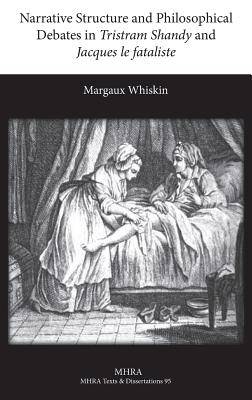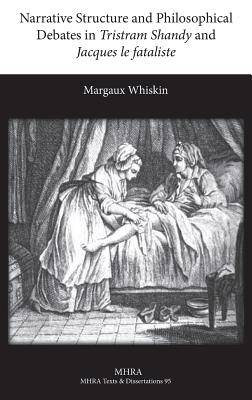
- Afhalen na 1 uur in een winkel met voorraad
- Gratis thuislevering in België vanaf € 30
- Ruim aanbod met 7 miljoen producten
- Afhalen na 1 uur in een winkel met voorraad
- Gratis thuislevering in België vanaf € 30
- Ruim aanbod met 7 miljoen producten
Zoeken
Narrative Structure and Philosophical Debates in Tristram Shandy and Jacques Le Fataliste
Margaux Whiskin
€ 55,95
+ 111 punten
Uitvoering
Omschrijving
Contrary to what might be expected from a philosophical novel, Sterne and Diderot do not impose their own views upon the reader. The author's voice is but one amongst many others. Margaux Whiskin's argument hinges on Bakhtinian dialogism, which can be defined as the presence of interacting voices and views. In Tristram Shandy and Jacques le fataliste, dialogism occurs through the narrative structure allowing for the confrontation of the contradictory discourses in the philosophical debates, and enabling them to engage in dialogue, instead of establishing the authorial voice as the sole valid discourse in the text. Through those contradictions, the philosophical content takes on a different form, that of a refusal of systematic discourse. Sterne and Diderot do not offer a solution to the various questions debated in their novels. However, they do offer a philosophical approach whereby the confrontation of contradictory ideas creates a dynamic for the pursuit of truth. By engaging in dialogue and constantly opening questions where there is no single right answer, Sterne and Diderot redirect the focus of the reader and invite him to perceive truth not as a destination to be reached, or as a closed conclusion, but as being present in the quest itself, in the ongoing dialogues and debates. Margaux Whiskin is a teaching fellow in the Department of French Studies at the University of Warwick.
Specificaties
Betrokkenen
- Auteur(s):
- Uitgeverij:
Inhoud
- Aantal bladzijden:
- 176
- Taal:
- Engels
- Reeks:
Eigenschappen
- Productcode (EAN):
- 9781781880166
- Verschijningsdatum:
- 2/01/2014
- Uitvoering:
- Hardcover
- Formaat:
- Genaaid
- Afmetingen:
- 156 mm x 234 mm
- Gewicht:
- 426 g

Alleen bij Standaard Boekhandel
+ 111 punten op je klantenkaart van Standaard Boekhandel
Beoordelingen
We publiceren alleen reviews die voldoen aan de voorwaarden voor reviews. Bekijk onze voorwaarden voor reviews.











